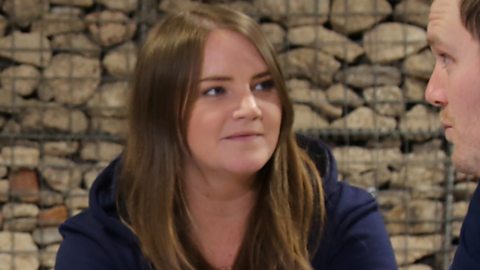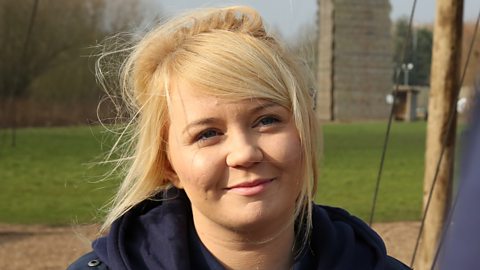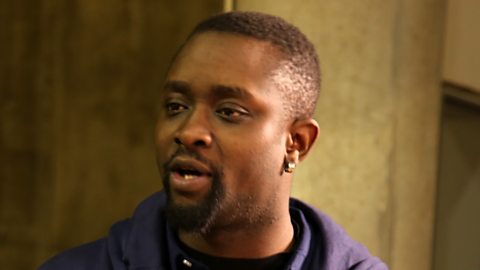Choosing the right words
Watch the video to find out more.
Speaker: On arrival we’ll give a teacher a welcome pack. This has all the information they need for their visit.
It includes a programme, itinerary, important information such as the fire procedures for the centre, and also a welcome letter from our guest services team.
I need to write this up in advance and I need to present it clearly so that anybody can understand it.
I am currently writing out a welcome letter for my group, and I’ve written down notes on my pad in quite small form, so what I’m going to do is change them into proper sentences so that teachers can fully understand it.
It’s a welcome letter so I keep the tone of the writing light.
I use sentences like 'I hope you have a great stay with us,' and 'We are here to help you with anything you need.'
I keep the paragraphs short, with a space between so it’s easier to read.
The fire procedure document is very important, so we want everybody to read it.
To keep it interesting, I use bullet points, headings, subheadings and bold for emphasis.
A document like this can be saved and used again for the next visit.
Make the sentences shorter
Test your knowledge with this activity.
How to proofread
Watch the video to find out more.
Speaker: The welcome pack is very important, so I have to ensure that I check it for spelling, punctuation, grammar, to ensure there are no misunderstandings.
The smooth running of the centre depends on these documents, so we have to proofread them carefully.
I’ve just printed out the first draft of the welcome letter, and I’m just proofreading it for any mistakes.
First of all, the word 'leader' needs a capital 'L' because it is a proper noun and I’m talking about one individual leader.
Another one that I’ve found is the word 'the' and 'opportunity': there isn’t a space between them and also opportunity has got a typo, it should be an 'o' instead of an 'e'.
'Once again' in the final sentence needs a comma, as it is a pause in the sentence.
After proofreading I found a number of errors and inconsistencies.
It’s important that the final programme looks like it’s been written by one person and the language is consistent.
And I think that is everything.
So, what I’ll do now is, I will change these mistakes, and print it out again then it’s all good to go.
Have a go at proofreading
Test your knowledge with this activity.
Listening and making suggestions
Watch the video to find out more.
Speaker 1: (TO AUDIENCE) Mike will approve the final pack and so I'll go through everything with him.
(TO OTHER PEOPLE) OK man, so I’ve been through all the programming stuff.
So all I need you to do is just double check that for me, make sure everything’s OK.
Speaker 2: Good job Craig. We’ve just found out that the school is delayed in traffic which means unfortunately they’re going to miss that first activity.
Speaker 1: That’s a shame. The teacher was telling me that they’re really excited to do climbing.
Speaker 2: Is there anything we can do?
Speaker 1: Yeah, right, let me think.
Right OK, so we’ve got orienteering here.
If we switch that out to climb that gives them enough time to get here.
What I’ll do is I’ll check with the programme and make sure it’s available.
(TO AUDIENCE) I take in all the information from Mike and make any relevant remarks and contributions.
I can see how I need to accommodate the group, but I need to discuss this with another member of staff before I can put anything in place.
I don’t want to say 'yes' to something I’m not sure of.
Can you sum up the problem?
Test your knowledge with this activity.
More on Sport and leisure
Find out more by working through a topic
- count5 of 5

- count1 of 5

- count2 of 5

- count3 of 5
